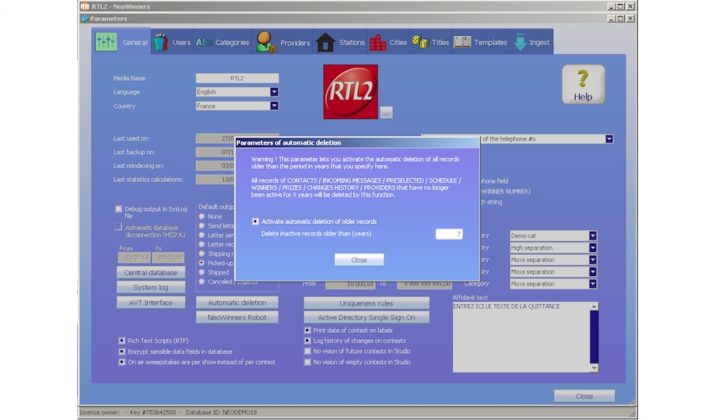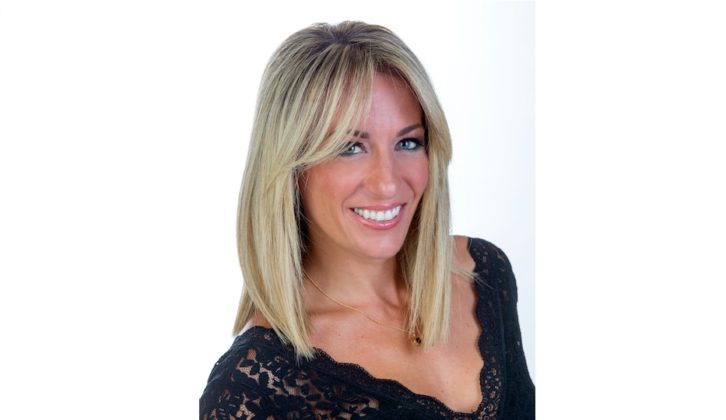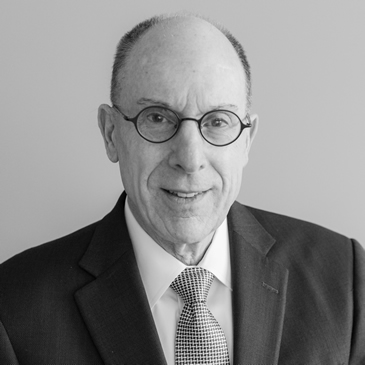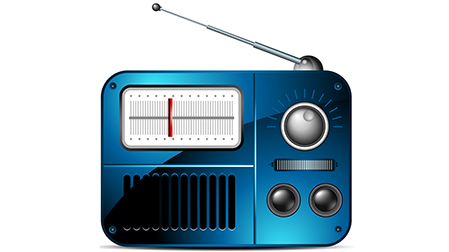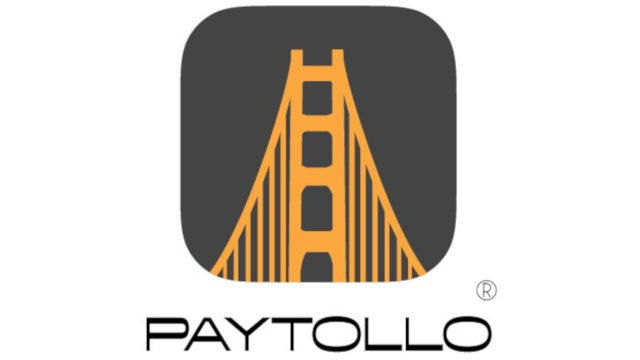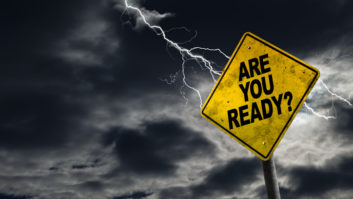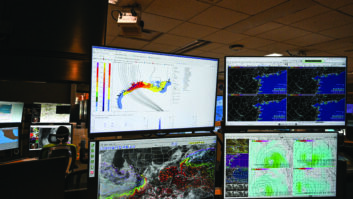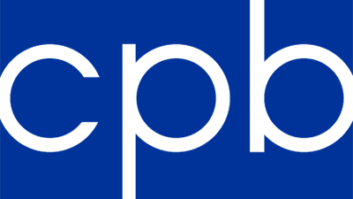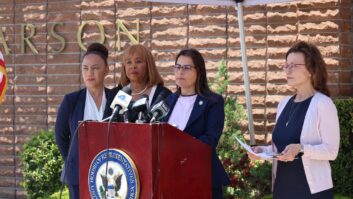
Scott Kirkman is station manager for WKGC(FM/HD) in Panama City, Fla., which was in the direct path of Hurricane Michael in early October. He participated in a Q&A to describe the station’s efforts to stay on the air and to inform the local community in the wake of the storm.
Radio: WKGC was the only broadcast facility to remain on the air for the entirety of Hurricane Michael. How did you prepare for the storm in order to make this happen?
Scott Kirkman: WKGC is part of a network in Florida called the Florida Public Broadcasting Emergency Network. As part of the network, all of the Florida Public Broadcasters share weather and news information, and are provided severe weather updates from a team of meteorologists at the University of Florida in Gainesville. As a participant in this network, the State of Florida provides grants each year that we apply for.
The sole purpose of the grant is to purchase equipment that can assist during a disaster such as Hurricane Michael. Over the past five years we have used this grant money to beef up all of our operations, including establishing a remote broadcast studio at the Bay County Emergency Operations center. This allowed us to seamlessly transition from one studio to the other without having to disconnect a bunch of equipment to do so.
We also have established a great relationship with the Bay County Emergency Management. We worked out a deal with them that if they provided WKGC with information before, during and after the storm, we would be their voice.
No one ever expected that for a time WKGC would be the only voice, but it did. Our entire team has spent years preparing for a worst-case scenario, never thinking that this would happen.
Radio:Can you tell a story that illustrates what it was like to broadcast during the storm? What technical challenges did you face?
Kirkman: Looking back, the storm is still a blur. Our remote broadcast studio is essentially a closet, so we did not have any windows. I would go out occasionally to look out the small windows in the EOC. I’ve been through hurricanes before, but it was evident that Michael was like no other hurricane.
From our location at the EOC, we can see our broadcast tower across the street. I think it was as the second eye-wall was coming across that we lost visibility. It was a complete whiteout. That was scary.
The other exciting and frightening moment was when I was on air during the storm and my colleague comes into the studio and tells me “You’re it.” I wasn’t sure what she meant. She was telling me that all other broadcasts were down except for WKGC. That was a pretty incredible moment that almost brought tears to my eyes.
As far technical challenges we did have a few. To begin with, in the planning stages, we tried to plan for everything. However, until you go through an event like this you do not know what you are missing. The biggest technical challenge however was when our transmitter lost power. We have a backup generator, but experienced a problem with the transfer switch. It took us a few hours to get the generator up and running again.
Radio:How many other hurricanes has WKGC survived in recent years? How did Hurricane Michael compare?
Kirkman: Over the last several years, WKGC has not had any major storms to deal with. When my team took over about five years ago, we made an effort to put a focus on the remote studio and to ensure it would work if a storm came our way. The experts have been saying for a long time that this area was due for a major storm.
We did a “test run” during Hurricane Hermine in 2016. The storm was a non-event for the Bay County area, but did impact part of our listening area in Apalachicola. Hurricane Hermine gave us an idea of what changes or additions we needed to make in order to broadcast during an event like Michael. There was not any comparison for Michael. Again, this was a storm that no one was really prepared for, as it defied the typical behavior of hurricanes.
Radio: What are the biggest challenges facing your station in the wake of the hurricane?
Kirkman: One of the biggest challenges after the hurricane was what to do next. We had made preparations before, during and immediately following a storm. However, we had not considered what to do if we had to stay at the EOC for an extended length of time.
This is where it gets technically complicated. Our station broadcasts using the Wheatstone Audio over IP network. That network is also routed through the Gulf Coast State College central core router. The EOC and the main campus are connected through a fiber optic run underground through Panama City. Because of the extent of the damage, many fiber runs were broken, our connection to the main campus being one of them.
We were able to broadcast fine, but we lacked a connection to the outside world. The loss of communications after Michael, especially when Verizon went down, caused a multitude of challenges for the entire area. I was able to see some brilliant individuals work together to develop solutions for these challenges in ways that may have been previously unthinkable. It was pretty amazing to watch.
Radio: When do you anticipate things will return to normal for your station — and your community?
Kirkman: That’s a great question, and one I’m not sure anyone knows the answer to. Our main studio got very wet during the storm, and has now been gutted to dry out and repair it. Until that process is complete and we are given the all-clear, we will continue to broadcast from our remote studio at the EOC. We are slowly getting back to some of our regular programming after overcoming some scheduling challenges. The mission of WKGC at the moment is still to provide official information from the EOC to the public, so until there is no longer a need for that we will continue to do so. I don’t think we will ever see “normal”, or at least the kind of normal prior to the storm.
An event like Hurricane Michael changes a community. Hopefully it changes our community for the better. Every day when you go out, you can see things improving. We hear stories everyday of neighbors helping neighbors and strangers helping strangers. We have all witnessed the outstanding work of the power companies to get power back to most residents in record time. Having been a part of this, and having seen all of this, what we will see next is a return to a new kind of normal.
Radio: After surveying the damage, Powell Broadcasting elected to permanently shut down its Panama City stations. How do you think that will affect the market going forward? Do you anticipate another broadcaster taking its place?
Kirkman: It was terrible to hear about Powell Broadcasting. I was an avid listener! From the perspective of a public radio station like WKGC, I hate to see another broadcaster leave. That is not our goal. All broadcasters serve a purpose in the community whether it is entertainment or information etc. So, when one leaves it does leave a hole. I feel certain that something will come along and fill the void. The market here is still strong and will bounce back, and I’m sure in the near future there will be a replacement.
Radio: Anything else readers should know?
Kirkman: My hope in the aftermath of Hurricane Michael is that our community would recognize that there is still value in public radio. Public radio everywhere faces challenges with funding, support and even legitimacy.
Commercial radio faces some of the same challenges. I often talk with my students about what is next for radio.
What can radio do to overcome entertainment on demand from sources like iTunes, Spotify or Pandora? I have had numerous people reach out to me and to the station sharing their appreciation because we were the only thing they had to listen to. TV was gone and the Internet was down, so radio was the only outlet for information most people had. I hope that this community will have a new respect and value for radio, especially public radio.
